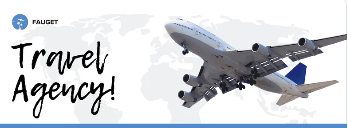Relocating to a new country is an exciting adventure, but it also requires thorough preparation, especially when it comes to documents. Immigration officials, border controls, and local authorities all require specific paperwork to ensure you have permission to enter and stay. Whether you’re moving for work, study, or family reasons, having the right documents can save time, reduce stress, and keep your relocation on track. Below, we’ll cover the most important documents you need and answer key questions about preparing for a move abroad.
1. Passport
Your passport is the most essential document for international travel. It serves as your primary identification and confirms your citizenship. Make sure that your passport is:
- Valid for at least six months beyond your intended stay (this is a common requirement for many countries).
- Has blank pages for stamps and visas.
If your passport is close to expiration, renew it before you move.
2. Visa
Depending on your destination and the purpose of your move (work, study, or family reunification), you’ll need a visa. Types of visas include:
- Work visa: Required if you are employed or self-employed in the destination country.
- Student visa: Necessary for studying at foreign institutions.
- Family or spouse visa: Needed if moving to be with a spouse or family member.
- Tourist visa: Some people move initially on a tourist visa and later change their status (though this depends on local laws).
Always research visa options and requirements specific to your country of destination, as they vary significantly.
3. Employment Documents
If you’re moving for work, prepare employment documents, such as:
- Job offer letter or employment contract: Proof that you have secured employment.
- Work permit: Some countries require a work permit in addition to a visa.
- Professional certifications and diplomas: Especially necessary for specialized fields like medicine, law, or engineering.
Many countries require an authenticated or apostilled copy of these documents, so check the requirements in advance.
4. Health and Vaccination Records
Most countries want proof that you’re in good health to avoid spreading infectious diseases. Requirements can include:
- Vaccination records: Some countries mandate vaccinations against certain diseases (e.g., yellow fever, COVID-19).
- Medical certificate: This might include a general health assessment from a certified doctor.
- Health insurance: Some countries require proof of health insurance, which may be tied to your visa.
Ensure that these documents are translated into the official language of your destination if needed.
5. Financial Proof
You may need to prove that you can financially support yourself. Financial documents can include:
- Bank statements: Show sufficient funds to cover your expenses.
- Pay slips or income statements: Used to verify ongoing income.
- Sponsorship letter: If a family member or organization is financially supporting you.
Check for specific financial thresholds or requirements, as these vary depending on the country and visa type.
6. Educational Documents
If you’re moving to study or for work that requires specific qualifications, you’ll likely need educational documents such as:
- Diplomas or degrees: Original copies and notarized translations if required.
- Transcripts: Proof of courses and grades, particularly for university admission.
- Language proficiency test results: For non-native speakers, countries often require language exams (e.g., IELTS or TOEFL).
Some institutions or employers may request that these documents be validated through an apostille or embassy authentication.
7. Proof of Accommodation
Proof of accommodation is often required for visa applications. This could be:
- Rental agreement: A lease or rental agreement from your landlord.
- Invitation letter: If you’re staying with family or friends, they may need to provide a formal invitation letter.
- Hotel reservation: Sometimes acceptable as temporary accommodation proof.
Be prepared to show this documentation upon arrival, as some customs agents ask for it.
8. Marriage or Birth Certificates
If you’re moving with family or joining a spouse, marriage and birth certificates may be necessary. These documents are used for:
- Spousal or family visas: To prove family relationships.
- Dependent visas: For children or other dependents.
Make sure these documents are officially translated and authenticated if necessary.
FAQs
What Documents Are Essential for Moving to Another Country?
The essential documents include a valid passport, visa, proof of financial stability, medical and vaccination records, and employment or education documents. Specific requirements may vary depending on your destination and purpose for moving.
Do I Need a Visa for Every Country?
Not always. Some countries have visa-free agreements with others. However, if you’re planning a long-term stay, most countries require a visa tailored to your purpose (work, study, etc.). It’s crucial to check specific visa requirements for each country.
Is Health Insurance Mandatory When Moving Abroad?
Yes, in many cases. Some countries require proof of health insurance as part of the visa application, while others mandate it upon arrival. If insurance is mandatory, ensure it covers medical expenses in the new country.
Can I Move to a Country Without a Job Offer?
It depends on the country. Some allow entry for job-seeking purposes, while others require a confirmed job offer. In some cases, you may need to apply for a specific job-seeker visa.
What Are the Requirements for Moving to Another Country with Family?
In addition to the standard documents, you’ll need proof of relationship, such as marriage and birth certificates, and potentially additional financial documentation to demonstrate the ability to support your family.
Conclusion
Moving to a new country requires careful planning, especially when it comes to documentation. Having the right documents, from your passport to health records and financial proof, can make your transition smoother and hassle-free. Double-check the specific requirements for your destination, as they can differ widely.






